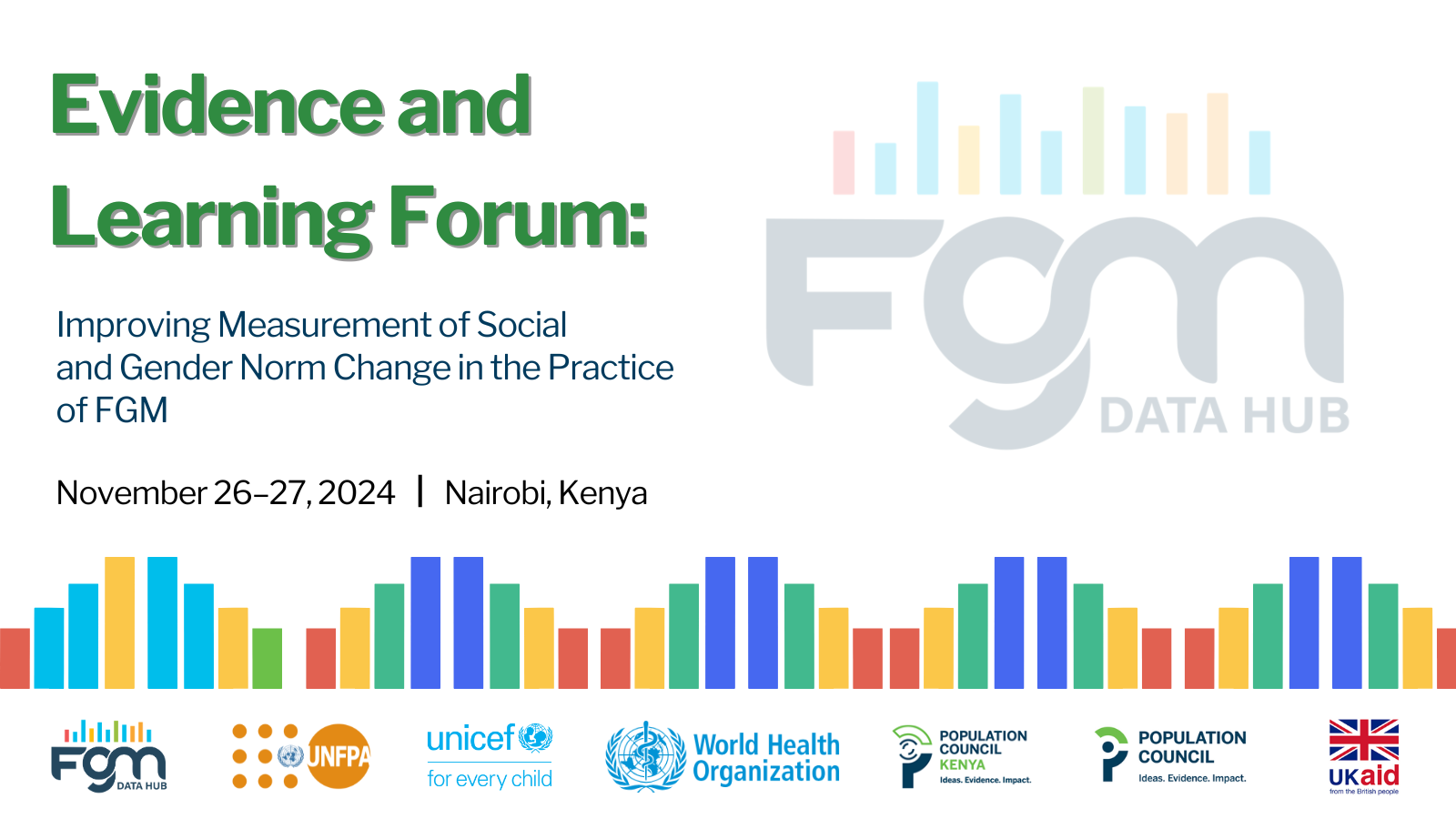Closed invite
Jump to: Resources │ Social Media Toolkit
The Population Council-led FGM Data Hub, in partnership with UNICEF, UNFPA, and World Health Organization (WHO) is hosting “Evidence and Learning Forum: Improving Measurement of Social and Gender Norm Change related to Female Genital Mutilation (FGM)” on November 26 and 27 at the Nairobi Serena Hotel.
In 2022, the Research Agenda to Strengthen Evidence Generation and Utilisation to Accelerate the Elimination of FGM, developed by UNICEF in partnership with the Population Council and in collaboration with UNFPA and WHO, drew attention to the continued need to identify valid measures for evaluating changes in social and gender norms and practices within FGM interventions. Increasing the utility of monitoring, learning, and evaluation (MEL) approaches for FGM programming and resource allocation remains critical today. To effectively address FGM, prevention and intervention programs must be able to consistently identify and evaluate outcomes that signal shifts in social norms. By tracking these subtle yet critical changes, programs can adaptively manage their strategies to maximize impact.
Over the last decade, advancements have been made in developing tools to better monitor shifts in social norms and attitudes toward FGM. This includes the UNFPA-UNICEF Joint Programme in partnership with Drexel University produced ACT Framework and the Council-led FGM Data Hub tools to measure change, among others. Together, these tools represent readily available resources that programs may use to improve the effectiveness and sustainability of their interventions. While measuring subtle shifts in norms remains challenging, the correct application of the right tools and guidance can substantially strengthen programming efforts, enabling a more nuanced understanding of progress and better targeted approaches to eliminating the practice.
This meeting is bringing together leading experts and practitioners from across Africa to share and explore existing tools, successful strategies, and challenges in measuring changing social and gender norms surrounding FGM. This forum is an opportunity to shape and enhance future approaches to FGM intervention, fostering culturally responsive, data-driven progress toward the elimination of FGM by 2030.
Tools for Measuring/Monitoring Change
- The ACT Framework (UNICEF)
- Social Attitudes Measurement Tool for Practitioners (SAM) (FGM Data Hub)
- Capturing New or Recent Cases of FGM (FGM Data Hub)
Additional Resources
- A Research Agenda to Strengthen Evidence Generation and Utilisation to Accelerate the Elimination of FGM (FGM Data Hub, UNICEF, UNFPA, WHO)
- Assessing social norms and designing social norm change programming (Plan International)
- Compendium of Indicators on Female Genital Mutilation (UNFPA)
- Resources for measuring social norms: a practical guide for programme implementers (Learning Collaborative to Advance Normative Change)
- Person-centered communication for FGM prevention: Facilitator’s guide (WHO)
- Participatory Research Toolkit for Social Norms Measurement (UNICEF)
Social Media Toolkit
Materials for this event’s social media toolkit are found on Trello.
